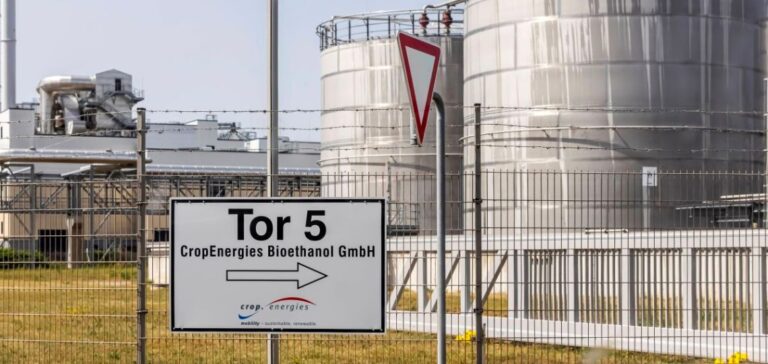CropEnergies, a German biofuel producer, is feeling the full force of the energy crisis. In fact, Germany is already suffering the consequences of this crisis. German industrial production is declining, andGermany risks recession in 2023.
CropEnergies victim of the energy crisis
CropEnergies is no exception to the rule. Affected by soaring energy and feedstock prices, the company may reduce or stop production at some ethanol plants.
This is particularly true of its Wilton plant in Great Britain. The profitability of the company is threatened. The Wilton plant has a production capacity of 400,000 m3 of renewable ethanol per year. According to CropEnergies, it could close as early as January 2023.
In addition to soaring prices, CropEnergies faces significant competition. European ethanol imports from the United States and Brazil are driving down the selling price of biofuel. In fact, the price of Brazilian ethanol has fallen sharply as a result of the reduction in fuel taxes.
Thus, CropEnergies states:
“In the coming weeks, management will closely monitor the energy, grain and ethanol markets and decide whether capacity adjustments, or even temporary closure of some plants, will be necessary.”
At the same time, the German company confirms its objectives for the year 2022. It expects sales of between 1.47 and 1.57 billion euros. EBITDA is expected to be between 255 and 305 million euros.






















